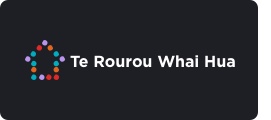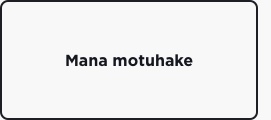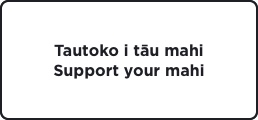7. Strengthen your understanding (Mana motuhake)

|
When we strengthen the capacity of everyone who supports mokopuna, we promote positive relationships and environments that enable our mokopuna to grow and flourish. A key aspect of learning support is recognising the adults in the lives of mokopuna as key agents of change. - He Pikorua |
||
|
Mana motuhake belongs in every element throughout He Pikorua in Action. Mana motuhake means that ākonga, whānau, kaiako and others in the team have what they need to continue to make progress. This is achieved when the participation, contribution and partnership of all the team members is prioritised. It requires full engagement in learning new ways of noticing, recognising and responding to challenges or puzzles of practice. Mana motuhake shifts away from the responsibility of addressing the learning and wellbeing needs of ākonga falling to one person, in isolation from the key adults in ākonga lives. |
||
|
These three videos share examples of mana motuhake from a parent, kaiako and ākonga perspective. The clear messages in these videos is that we are constantly looking from new and better ways of doing things together so that all ākonga have their learning and wellbeing safeguarded. |
||
|
Learning to understand - bringing everything together as a cohesive whole. Collective responsibility for the learning and wellbeing of all ākonga. Supporting, modelling and guiding ākonga to look for ways to support each other’s learning and belonging. |
||
Adaptive ExpertiseAdaptive expertise is 'the ability to apply meaningfully-learned knowledge and skills flexibly and creatively in different situations. This goes beyond acquiring mastery or routine expertise in a discipline. Rather, it involves the willingness and ability to change core competencies and continually expand the breadth and depth of one’s expertise.' Nature of Learning This idea of developing adaptive expertise applies to all - LSC/SENCo, kaiako, support staff, whānau and ākonga. |
||
| Adaptive experts are deeply knowledgeable about both the content of what is taught and how to teach it. They are aware of their assumptions underpinning their practice and know when they are helpful and when to question them, and if necessary, to let them go. They become expert in retrieving, organising and applying professional knowledge in light of the challenges and needs presented by the students they are teaching. - Timperley | ||
|
This model describes the optimal corridor for adaptability. Efficiency is the capability to recall and apply existing knowledge and skill to a situation. This alone is about becoming more efficient at doing what has always been done. Innovation is the restructuring of knowledge, skills and practices to improve in the face of a challenge. The goal is to have the right balance between efficiency and innovation to be able to have flexible and novel responses in complex situations. |
(Bransford, Derry, Berliner, & Hammerness, 2005) |
|
|
Helen Timperley talks about developing adaptive expertise. |
||
Agency and self efficacyAgency is the ability to identify valued goals and to pursue these proactively, purposefully and effectively. Self-efficacy is essential in agency. This is the judgement that a person makes about their own capability to achieve. The Education Hub has useful information about the role of self efficacy and agency in learning for ākonga and kaiako. |
||
| To access reflective questions to 'support your mahi' in mana motuhake click on the tab below. | ||




